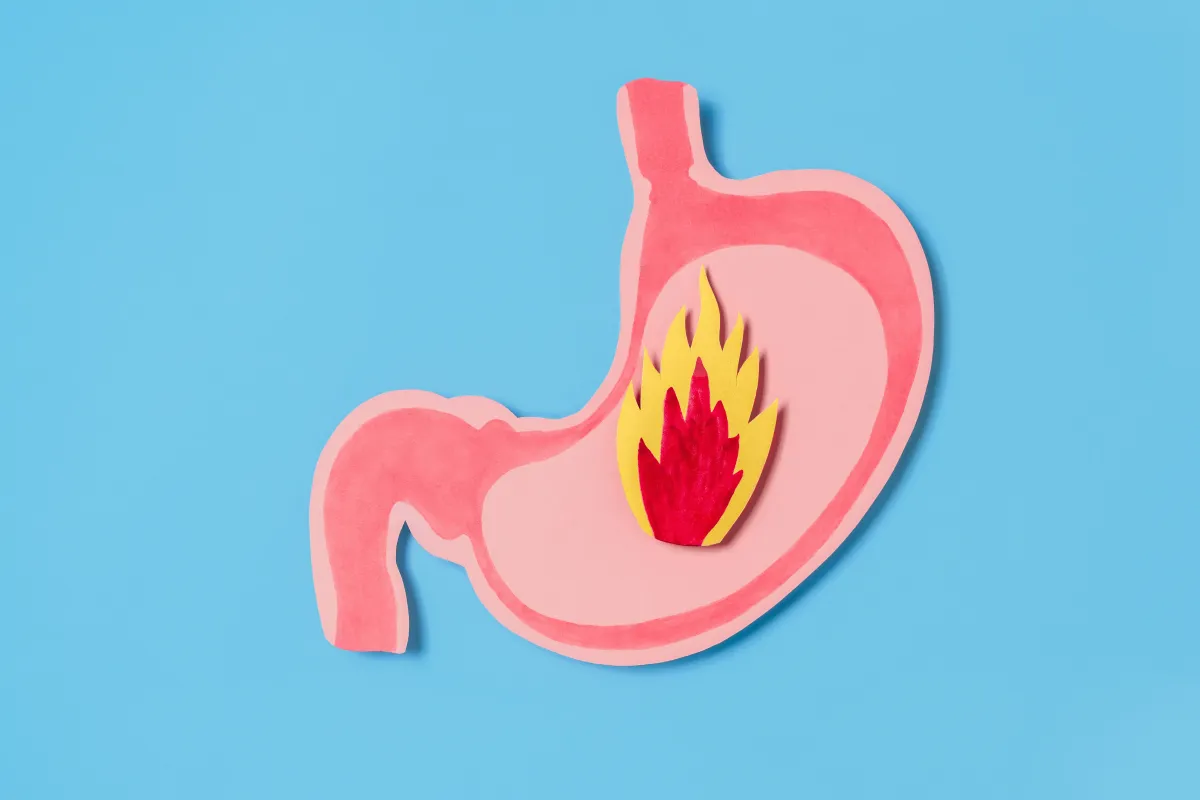Reflux: Gut Health
Reflux, or gastroesophageal reflux, occurs when stomach acid flows back into the esophagus due to a weak lower esophageal sphincter, often causing heartburn and requiring lifestyle or medical management.

Description of Reflux:
Reflux, specifically known as gastroesophageal reflux, is a condition characterized by the backward flow of stomach contents, including stomach acid, into the esophagus. This typically occurs when the lower esophageal sphincter (LES), a muscular valve meant to prevent the backflow of stomach contents, fails to function properly. It may either open inappropriately or fail to remain closed.
The most common symptom associated with reflux is heartburn. When reflux occurs frequently, it can irritate or inflame the lining of the esophagus, leading to a condition called reflux esophagitis. If left unmanaged, frequent reflux can develop into gastroesophageal reflux disease (GERD), which may lead to more serious complications, such as esophageal ulcers or even Barrett's esophagus, a precancerous condition.
Effective management of reflux involves lifestyle modifications, dietary adjustments, and sometimes medications to reduce stomach acid and improve LES function.
role of gut imbalances in Reflux:
Acid reflux, also known as gastroesophageal reflux disease (GERD), is a condition where stomach contents flow back into the esophagus, causing symptoms such as heartburn and regurgitation. Gut imbalances are thought to be a contributing factor to this condition.
Here’s how:
Stomach Acid Imbalance: A primary factor involves the balance of stomach acid. Hypochlorhydria, or low stomach acid, is a common imbalance that can lead to reflux. In this condition, the lower acidity allows pathogenic bacteria and yeast to proliferate within the stomach and intestines. The resulting microbial overgrowth can produce excess gas and toxins. These gases can increase stomach pressure and cause stomach contents, including acid, to push back up into the esophagus, leading to reflux symptoms.
Impact on the Lower Esophageal Sphincter (LES): The proper functioning of the LES, a muscular ring that closes off the stomach from the esophagus, is crucial for preventing reflux. Gastrointestinal imbalances or dysfunction can impair the LES, causing it to relax inappropriately or remain open, thereby allowing stomach acid to escape into the esophagus. Even minor imbalances can affect LES tone and functioning.
Influence of Gut-Brain Interaction: The gut and brain are interconnected, meaning that stress and emotional health can directly influence gut function and acid production. Stress can exacerbate gut imbalances, leading to increased acid production or affecting LES functionality, thereby aggravating reflux conditions.
Lifestyle and Dietary Factors: Diet plays a significant role in maintaining gut health. Poor diet can lead to dysbiosis (an imbalance of gut bacteria), which can further contribute to reflux by affecting digestion and gut function negatively. Eating habits, such as consuming large meals or certain trigger foods, can also worsen reflux symptoms by increasing stomach pressure and exacerbating gut imbalances. In summary, gut imbalances can contribute significantly to the development and severity of acid reflux. Addressing these imbalances through diet, medication, or lifestyle changes is often part of a comprehensive treatment strategy for managing reflux symptoms.
